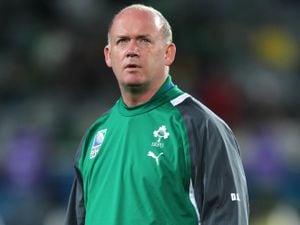Care department created for former players living with neurodegenerative disease
Dawn Astle will be involved in the new project.
A dedicated care department for former players living with neurodegenerative disease has been set up by the Professional Footballers’ Association.
Dawn Astle will be the project lead for neurodegenerative disease (NDD) in football, the union said.
She is the daughter of former England and West Brom forward Jeff Astle, who died in 2002 with chronic traumatic encephalopathy (CTE), a fatal brain disease often caused by repeated blows to the head.
The coroner recorded a verdict of death by industrial disease at Astle’s inquest.
Rachel Walden, whose father Rod Taylor was diagnosed with an NDD after his death in 2018, will oversee an extended family support advisors team.
Former England captain Dave Watson’s wife Penny will act formally as an independent consultant. Penny is convinced that her husband is living with CTE based on scans on his brain carried out in the United States.
The PFA said it would recruit a specialist head of former player care to lead the new department.
The creation of the department follows the publication of the 2019 FIELD study – co-funded by the PFA and the Football Association – which found footballers were three-and-a half times more likely to die from a NDD than an age-matched member of the general population.
The PFA announced just over a year ago that Walden and Astle had joined the union as advisers on neurodegenerative care provision.
The union’s chief executive Maheta Molango said on Wednesday: “The first formal meeting I had (in the role) was with Dawn and Rachel.
“These were tough conversations, and I understand that families have felt let down.
“I also recognise that Dawn and Rachel took a leap of faith last year. Their sole focus has always been on providing care for families and raising awareness to protect current and future players.”

Astle had been heavily critical of what she saw as inaction from the PFA on the issue in the past, under Molango’s predecessor Gordon Taylor.
Molango added: “The creation of a new, dedicated department is hugely important, but we are acutely aware that this is just a first step.
“We are determined to take responsibility internally, but also to ensure that we advocate on behalf of members for a co-ordinated, football-wide approach on this issue.”
The union’s support will be supplemented by the PFA Charity.
Astle, who will combine her role with her work for the Jeff Astle Foundation, described the creation of the department as a “significant step forward”.
“I will always continue to support former players and their families living with dementia now, but a key focus of this new role will be to strengthen protections for current players and future generations,” Astle said.
“I will be working with football’s stakeholders to urgently improve players’ knowledge about the information they need to make informed decisions about their brain health.”

Consultant neuropathologist Dr Willie Stewart, the leader of the FIELD Study, has described football’s concussion protocols as a “shambles”.
The game’s lawmakers, the International Football Association Board (IFAB) is currently trialling additional permanent concussion substitutes but Astle and brain injury charity Headway, among others, believe temporary substitutions are a better approach.
Since 2020 the FA has introduced guidelines on heading in training, first for under-18s and then for the adult professional and grassroots game before the start of the current season.





